The Parliamentarians’ crushing defeat of Charles II’s army at Worcester finally brought to an end more than a decade of civil war in Britain.

Climb the 235 steps to the top of the tower of Worcester Cathedral and, once you’ve recovered your breath, you’ll be rewarded with a remarkable bird’s-eye view of the city below you. You’ll also be standing on the very spot where, on 3 September 1651, Charles II watched his tired and outnumbered army prepare to do battle with the forces of Oliver Cromwell. It would be the final battle of the Civil Wars.
After his father’s execution in 1649, the throne had passed, in theory at least, to Charles II. Charles was supported by the Scots, who disapproved of Charles I’s beheading (he had been their king as well) and had fallen out with their former English parliamentarian allies, particularly over religion. Parliament reacted by sending an army north which, led by Oliver Cromwell, defeated the Scots at Dunbar on 3 September 1650. Hostilities dragged on but on 1 January 1651, Charles was crowned king by the Scots at Scone. That July, the English crossed the Forth and, after defeating the Scots at Inverkeithing, cut their army off from its chief source of supplies. Hoping to tempt Charles and his Scottish army into hostile English territory, Cromwell left the border unguarded. Charles took the bait. At the beginning of August, he led his army into England.
هذه القصة مأخوذة من طبعة April 2017 من History Revealed.
ابدأ النسخة التجريبية المجانية من Magzter GOLD لمدة 7 أيام للوصول إلى آلاف القصص المتميزة المنسقة وأكثر من 9,000 مجلة وصحيفة.
بالفعل مشترك ? تسجيل الدخول
هذه القصة مأخوذة من طبعة April 2017 من History Revealed.
ابدأ النسخة التجريبية المجانية من Magzter GOLD لمدة 7 أيام للوصول إلى آلاف القصص المتميزة المنسقة وأكثر من 9,000 مجلة وصحيفة.
بالفعل مشترك? تسجيل الدخول
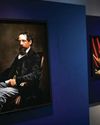
'Dickens's evocation of the fears, excitement and confusion of childhood is peerless'
DR LEE JACKSON ON WHY CHARLES DICKENS REMAINS RELEVANT TODAY
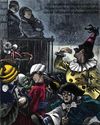
THE AUTHOR GOES ABROAD
Dickens expanded his horizons and boosted his fan-base by venturing overseas - but global fame came with a cost
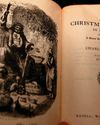
REVIVING THE FESTIVE SPIRIT
A Christmas Carol wasn't just a bestseller - it changed the way that Britons chose to mark the festive season
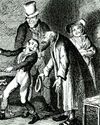
GIVING THE POOR A VOICE
From Hard Times to Oliver Twist, Charles Dickens used his pen to help illuminate the lives of the less fortunate
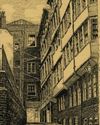
A JOURNEY THROUGH DICKENS'S LONDON
The works of Charles Dickens are synonymous with visions of Victorian London. We talk to Dr Lee Jackson about the author's love of the capital, and the locations that most inspired him
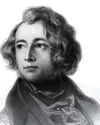
EXCEEDING EXPECTATIONS
Dr Lee Jackson chronicles Charles Dickens's journey from down-at-luck teenager to titan of Victorian literature
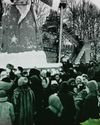
GIFTS, TREES & FEASTING
We take a journey through the photo archives to reveal how Christmas and its many traditions have been celebrated over the years - and around the world
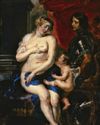
WHAT GREAT PAINTINGS SAY
We explore the story behind an allegorical painting that celebrates the triumph of love over hate, peace over war
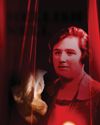
HELLISH NELL
Malcolm Gaskill delves into the life of Helen Duncan - the fraudulent Scottish medium whose ectoplasm-filled seances saw her ending up on the wrong side of the law
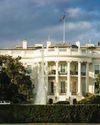
7 THINGS YOU (PROBABLY) DIDN'T KNOW ABOUT THE WHITE HOUSE
Presidential historian Dr Lindsay M Chervinsky reveals some of the most surprising facts about the world-famous US residence